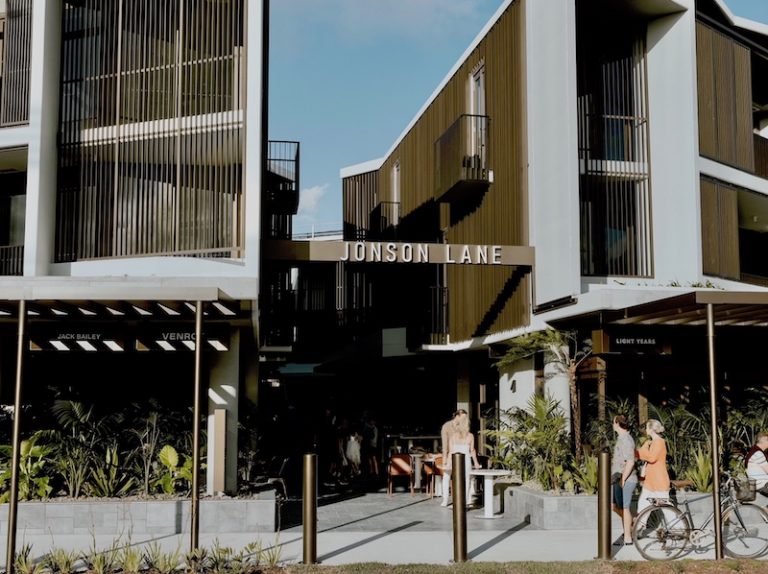When can you refinance a commercial loan?

You should refinance your commercial property loan if you’re keen to secure a better deal or terms.
However, it’s also important to obtain smart advice before a refinancing change.
Here’s why.
What is refinancing and how does it work?
“Refinancing is basically taking a loan that you already have and changing it,” Grow Capital managing director, Nick Wormald, explained.
“You take the loan and the balance that’s left because you want to go and find a better option.”
You can refinance to:
- Change the length of your loan
- Change the interest rate on your loan
- Change the terms of your loan
- Re-establish your loan over a longer period of time
- Choose a new lender or stay with the same one
Mr Wormald said an example of a refinancing change could be an investor with a 15-year loan finding repayments were increasingly heavy and interest rates were going up after just five years into the agreement.
For such investors, Mr Wormald said the next step would be speaking to a financial broker, who would, in turn, talk to a panel of lenders to find a better loan deal.
“You may be able to establish your loan over a 30-year term with a lower rate, your payments are probably half of what they were, and you’ve paid off all your overdrafts so everything is consolidated – or refinanced – with another lender,” he said.
How soon after getting a loan can I refinance?
“Eighteen months to two years is your refinancing sweet spot,” Mr Wormald said.
“The average refinance time is now 2.8 years.”
Mr Wormald explained refinancing more often than this could result in credit impairment with the frequent changes appearing on credit reports.
“Every time you take out a loan or change a loan, it will drag your credit rating down a bit,” he said.
“It also shows up on your credit file so eventually, your credit file score will drop down to a point where you’re not seen as an ideal borrower.”

Aim to refinance – or at least review – your commercial loan every 18 months to two years. Picture: Getty
Another good reason for not refinancing too often is the initial costs involved in setting up commercial property loans, according to Mortgage Choice broker Mr Soff.
“It’s not as attractive to move commercial loans around … unless there’s going to be a huge difference or your property has appreciated,” Mr Soff said.
“This is mainly because of the initial setup costs for loans such as establishment fees, valuation fees, and all of the other bits and pieces.”
Mr Wormald added that most lenders have made their money after 18 months-two years and were largely unfazed if investors moved on.
“Some lenders are very good at retention but the vast majority don’t try and retain their clients as they want to win new business,” he said.
“But most of the time, lenders just let the clients go unless they’re really big.”
Do I have to refinance?
There’s no need to refinance if you’re happy with your lender and loan terms.
But it’s still a good idea to organise a full review of your property every one to two years, Mr Wormald said.
“If it’s a smaller facility, a review should be done every year while if it’s a larger, more complex facility, every two years is good,” he said.
“Take it to market and have a look at what’s out there.
“If your asset has increased in value and the loan has come down, that means the loan to value ratio has dropped too.
“So it’s likely that you can achieve a better rate because it’s a lower risk.”
Can I refinance because of COVID financial distress?

If you’re experiencing COVID financial distress, speak to your current lender rather than refinancing with a new lender. Picture: Getty
“From a commercial standpoint, refinancing while under financial distress is highly unlikely to be successful,” Mr Wormald said.
“If there’s a government policy that supports the lenders’ risk, that changes everything.
“But lenders always look at the transactions that come across the table from a commercial standpoint.”
However, Mr Wormald said the flip side to this was lenders realising that businesses could bounce back even amidst COVID.
“The lenders that held back for too long [in the initial COVID wave of 2020] by not stepping back into the market and helping people actually missed out on a whole lot of business,” he said.
“So, I would hazard a guess that when the lenders see the bounce-back that we’re in right now … they’ll jump back in and really support businesses that have been distressed because of COVID.”‘
However, Mr Soff said lenders had already made a lot of allowances for bad debts and were still cautious about lending to investors severely impacted by COVID.
He advised that these investors could have more refinancing success with their current lender, rather than a new one.
“If you’re financially distressed, it’s always best to speak to your current lender as a new lender may not necessarily be favourable … because they would they consider you a risk,” he said.







